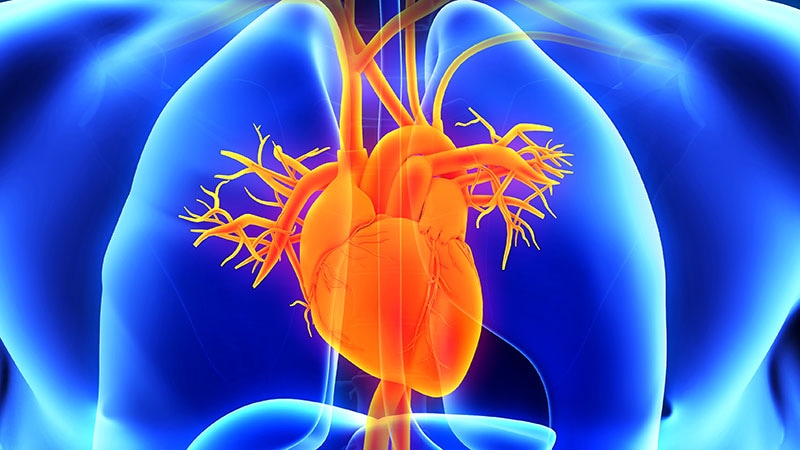Anticoagulation Edoxaban Trial Results
Temel Kavramlar
Anticoagulation with edoxaban is not beneficial in patients with atrial high-rate episodes without clinically defined AF, as it does not reduce the risk of cardiovascular death, stroke, or systemic embolism but increases bleeding risk.
Özet
The NOAH-AFNET 6 trial investigated the use of anticoagulation with edoxaban in patients with atrial high-rate episodes. Key highlights include:
- Patients with atrial high-rate episodes but no clinically defined AF do not benefit from anticoagulation.
- Atrial high-rate episodes are different from AF diagnosed on ECG and do not appear to be associated with stroke.
- The trial showed a low incidence of stroke in patients with atrial high-rate episodes.
- Results suggest that anticoagulation may not be necessary for patients with atrial high-rate episodes.
- The study may impact the management of patients with implanted devices or wearable technology detecting abnormal heart rhythms.
- The ARTESIA trial, similar to NOAH-AFNET 6, is expected to provide further insights.
Customize Summary
Rewrite with AI
Generate Citations
Translate Source
To Another Language
Generate MindMap
from source content
Visit Source
www.medscape.com
Anticoagulation No Benefit in Presumed AF on Cardiac Devices
İstatistikler
"The primary efficacy outcome event occurred in 83 patients (3.2% per patient-year) in the edoxaban group and in 101 patients (4.0% per patient-year) in the placebo group."
"A safety outcome event occurred in 149 patients (5.9% per patient-year) in the edoxaban group and in 114 patients (4.5% per patient-year) in the placebo group."
"ECG-diagnosed AF developed in 462 of 2536 patients (18.2% total, 8.7% per patient-year)."
Alıntılar
"These results tell us that patients with atrial high-rate episodes with clinical stroke risk factors ― but who do not have clinically defined AF ― do not need blood thinners. They do not need to be anticoagulated. That is a relief." - Dr. Paulus Kirchhof
"The stroke rates are very low in this trial, so anticoagulation was never going to work. But this is an important finding." - Dr. Barbara Casadei
Önemli Bilgiler Şuradan Elde Edildi
by Sue Hughes : www.medscape.com 08-25-2023
https://www.medscape.com/viewarticle/995861
Daha Derin Sorular
What implications might the results of the NOAH-AFNET 6 trial have on the use of wearable technology in detecting abnormal heart rhythms
The results of the NOAH-AFNET 6 trial could have significant implications for the use of wearable technology in detecting abnormal heart rhythms. The trial indicated that patients with atrial high-rate episodes, even though they resemble atrial fibrillation (AF) episodes, may not necessarily require anticoagulation therapy. This finding challenges the assumption that all irregular heart rhythms detected by wearable devices warrant immediate medical intervention. As wearable technologies become more prevalent in monitoring cardiac health, the study suggests that further research and randomized trials are necessary to determine the appropriate course of action for patients with abnormal heart rhythms detected through these devices. The results of the trial underscore the importance of distinguishing between different types of arrhythmias and the need for evidence-based guidelines in utilizing wearable technology for cardiac monitoring.
Is the low incidence of stroke in patients with atrial high-rate episodes a sufficient reason to withhold anticoagulant therapy
The low incidence of stroke in patients with atrial high-rate episodes, as observed in the NOAH-AFNET 6 trial, may not be a sufficient reason to withhold anticoagulant therapy. While the trial showed that these patients had a lower risk of stroke than initially anticipated, it is essential to consider the potential consequences of not administering anticoagulation. Anticoagulant therapy is typically prescribed to reduce the risk of cardiovascular events, including stroke, in patients with AF or other high-risk factors. Even though the incidence of stroke was low in the trial, the decision to withhold anticoagulant therapy should be carefully evaluated on a case-by-case basis, taking into account individual patient characteristics, risk factors, and the potential benefits and risks of anticoagulation. Further research and larger trials may be necessary to definitively determine the appropriateness of withholding anticoagulant therapy in this patient population.
How can the underpowered nature of the trial impact the validity of the results and subsequent clinical decisions
The underpowered nature of the NOAH-AFNET 6 trial could impact the validity of the results and subsequent clinical decisions. A trial is considered underpowered when it does not have a sufficient sample size to detect a true effect if it exists. In the case of this trial, the low number of stroke events observed may limit the ability to draw definitive conclusions about the efficacy of anticoagulant therapy in patients with atrial high-rate episodes. The lack of statistical power to detect differences in important outcomes such as stroke raises concerns about the reliability of the findings and the generalizability of the results to a broader patient population. Clinicians and researchers should interpret the results of underpowered trials with caution and consider the limitations of the study when making clinical decisions or recommendations. Further research with larger sample sizes and more robust study designs may be needed to confirm the findings of the NOAH-AFNET 6 trial and provide more conclusive evidence on the use of anticoagulant therapy in this patient population.
0
